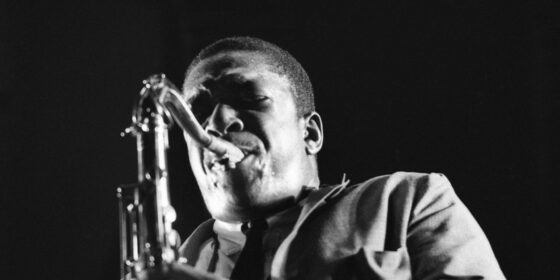Chasing Trane (John Scheinfeld, US) — TIFF Docs
By José Teodoro
If you own one jazz record, it’s probably Kind of Blue; if you own two, the other one’s probably A Love Supreme. John Coltrane plays on the former and is composer and bandleader on the latter, and it is not unremarkable that the legacy of this once popular musical form is now encapsulated in a figure so closely associated with the avant-garde and squawking.
Coltrane’s gloriously unlikely posthumous prominence, however, doesn’t negate the value of the sort of broad biographical summation offered in John Scheinfeld’s Chasing Trane. To say that the value of Coltrane’s work goes light years beyond A Love Supreme, “My Favorite Things” and his collaborations with Miles Davis is an understatement. Dutifully addressing Coltrane’s diversity and supplying historical context, Chasing Trane functions as a solid primer for newcomers, while its stunning performance clips, winsome home movies and teeming cavalcade of interviewees—Wayne Shorter, Sonny Rollins, Reggie Workman, Jimmy Heath and the always voluble Cornel West among them—will keep aficionados perfectly engaged.
At once workmanlike and self-consciously jazzy (there are timelines in the shape of glowing musical charts), the film tracks Coltrane’s North Carolina roots and accounts for the influence of religion, drugs and racism in his aesthetics, themes and politics. Scheinfeld is good with the musical traditions that made impressions on the young Coltrane and gathers up an impressive glut of current musicians—from Kamasi Washington to Common—to speak to Coltrane’s influence on the music of the present. Where Scheinfeld notably stumbles is in his failure to acknowledge the importance of many musicians—Ornette Coleman, Eric Dolphy, Albert Ayler, et al—who forged the foundations of the radically hybridized “free” innovations of the 1960s right alongside Coltrane. The guy is an indisputable giant and needn’t be falsely placed in a vacuum. But hey, at least Scheinfeld’s sense of jazz history is more modern than Ken Burns’.
Jose Teodoro


